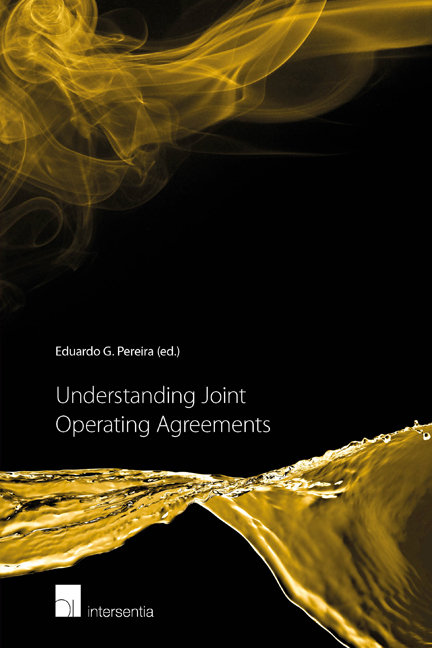Introduction
Published online by Cambridge University Press: 15 December 2017
Summary
Typically oil and gas resources belong to the relevant host government and private investors should obtain permission from that government to conduct oil and gas exploration and production activities. This permission is commonly granted through a concession contract, production sharing contract, service contract or a variation on any of the above (host government contracts). Private parties tend to regulate their own relationship in a private document known as a joint operating agreement (JOA). The JOA is one of the most important instruments in the upstream industry, along with the host government contracts.
The JOA is widely used in the petroleum industry across different continents and standards. Several regions prefer to issue a standard model form to speed up the negotiation process and to indicate the accepted practices in that region. Although different regions might have individual particularities, they tend to use similar structures and key provisions in regulating joint ventures.
There are a few publications available that explain what a JOA is, what the main provisions, the views of Non-Operators, and the consequences of a sole risk project. But there is no single publication that analyses and explains key practical concerns related to all JOAs. This book focuses on key practical issues that oil and gas companies might face in different parts of the world whenever they negotiate or implement a JOA.
The first part of this book deals with the enforceability of JOAs and practical issues related to regulatory challenges. This is a critical issue in any JOA, as all parties hope and expect to sign an enforceable agreement. It would be an unpleasant surprise to find out later in court or from the host government that the signed JOA is not enforceable or that it is not fit for purpose. For these reasons the first part of this book will address a variety of issues including but not limited to the challenges in signing a JOA in civil law countries, the considerations and concerns in negotiating a JOA for unconventional operations, the consequences and concerns arising from the interaction between JOAs and host government contracts, and compliance with bribery laws and decommissioning obligations.
Information
- Type
- Chapter
- Information
- Understanding Joint Operating Agreements , pp. 1 - 2Publisher: IntersentiaPrint publication year: 2016
